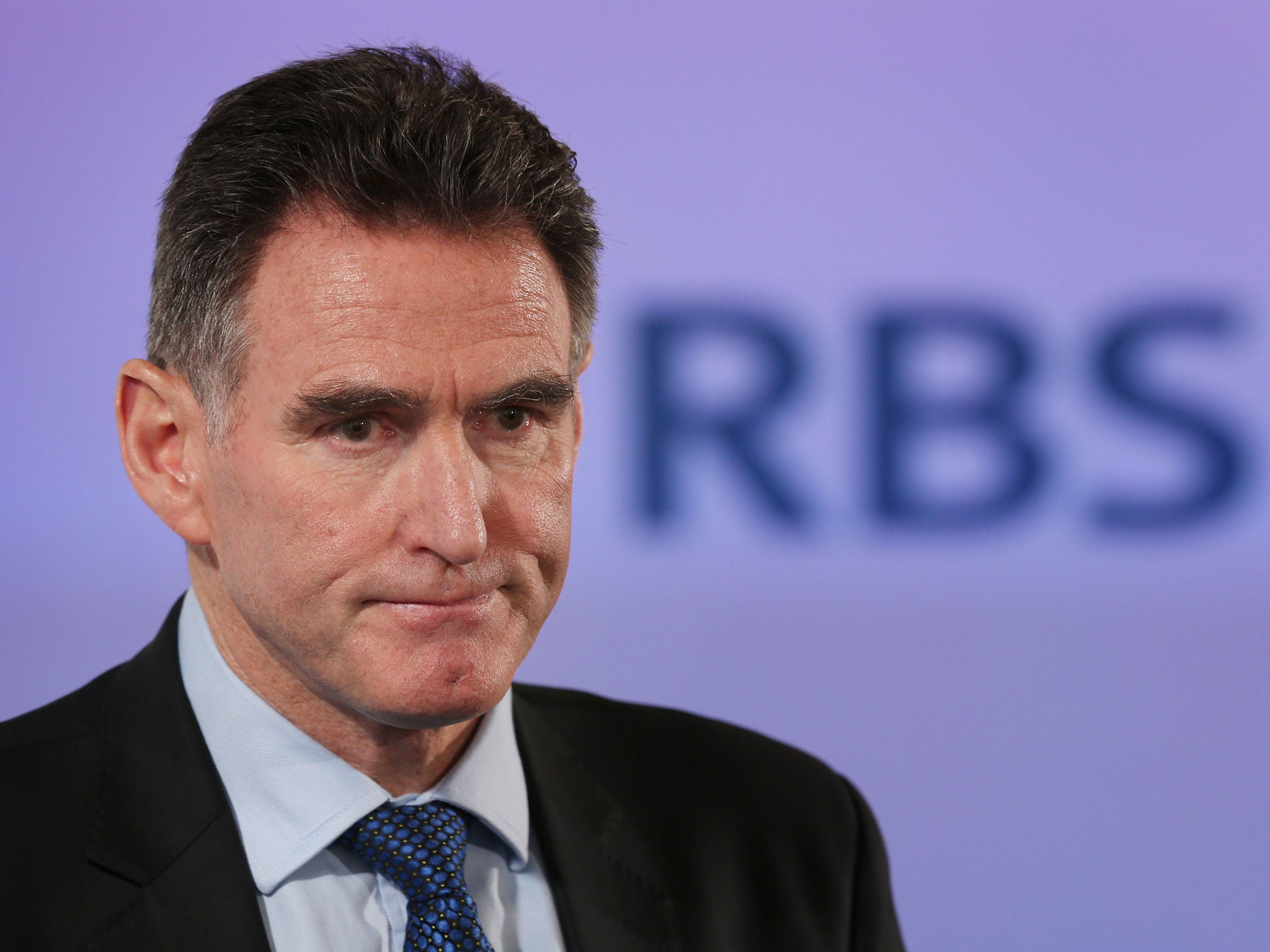RBS is still shooting itself in the foot ten years on from its £45bn bailout
CEO Ross McEwan has been touring TV studios to tell the world that it could be another ten years before its reputation is restored. Part of the reason for that is the decisions he's been making

Your support helps us to tell the story
From reproductive rights to climate change to Big Tech, The Independent is on the ground when the story is developing. Whether it's investigating the financials of Elon Musk's pro-Trump PAC or producing our latest documentary, 'The A Word', which shines a light on the American women fighting for reproductive rights, we know how important it is to parse out the facts from the messaging.
At such a critical moment in US history, we need reporters on the ground. Your donation allows us to keep sending journalists to speak to both sides of the story.
The Independent is trusted by Americans across the entire political spectrum. And unlike many other quality news outlets, we choose not to lock Americans out of our reporting and analysis with paywalls. We believe quality journalism should be available to everyone, paid for by those who can afford it.
Your support makes all the difference.RBS CEO Ross McEwan seems to like the TV spotlight every bit as much as Kim Kardashian when she’s trying to promote a book or a perfume.
In addition to his regular LBC appearances (I know that’s radio but they have cameras in their studio when he’s on) he’s been on Sky and the BBC over the last couple of days, opining that it could take as much as 10 years for the bank’s reputation to recover. Ouch!
The reason for this latest burst of publicity is not a book, or even a Run With Ross line of male grooming products, but the ten year anniversary of the bank’s £45bn taxpayer bail out.
So perhaps the downbeat message is understandable: It’s hardly a happy birthday.
RBS’s finances might have been repaired and it has started to declare profits. It’s even paying a small dividend. But in the minds of many it’s still a bad bank. That's not just because of the vast amount of state cash it received to keep itself afloat back in 2008. In fact, many of its problems date from the period after that.
McEwan recognised this in his interview: “I have apologised and I apologise again for the behaviour that went on in this bank between 2008 and 2013.”
He was, of course, referring to the activities of the bank’s business lending arm, and particularly the GRG unit that dealt with struggling business borrowers and has faced any number of accusations of thoroughly shabby behaviour. Some of those have had weight given to them by several sharply critical reports. The embarrassing revelations have included, for example, the existence of emails from staff urging colleagues to “give business enough rope to hang themselves”.
Of course, McEwan didn’t become CEO until the tail end of 2013, so there he was subtly adding a “but I can’t be blamed for that now can I” to his “sorry”.
What he is responsible for, however, is the latest round of branch closures that have generated outrage in Scotland in particular, in part because of its many isolated rural communities.
The economics behind the programme would appear to be sound: Branches are expensive to maintain and people are using them less than they used to.
However, closing them has come at the cost of further damaging the bank’s already battered reputation. They have inflamed the Scottish media and its public opinion, even led to the Scottish Parliament launching an inquiry. The cost of keeping at least some of them open might therefore have been worth it to RBS and its shareholders.
The bank's behaviour since the crisis is frankly staggering. Already in a hole because of the bail out, it just kept on digging.
The closure programme, and the insensitive way it has been handled, is just another example of that and as such, people might be inclined to question the sincerity of Mr McEwan's apology.
RBS has sought to address its reputational issues by painting over the RBS name wherever possible, which is why NatWest has been enjoying a rebirth in England and Wales, and in the City of London where it adorns the HQ.
This amounts to an attempt to paper over the cracks that have been opened up by the decisions its leaders have taken. Unfortunately for RBS it’s just not possible to do that in its home market, where it still seems hell bent upon shooting itself in the foot. Again.
Join our commenting forum
Join thought-provoking conversations, follow other Independent readers and see their replies
Comments